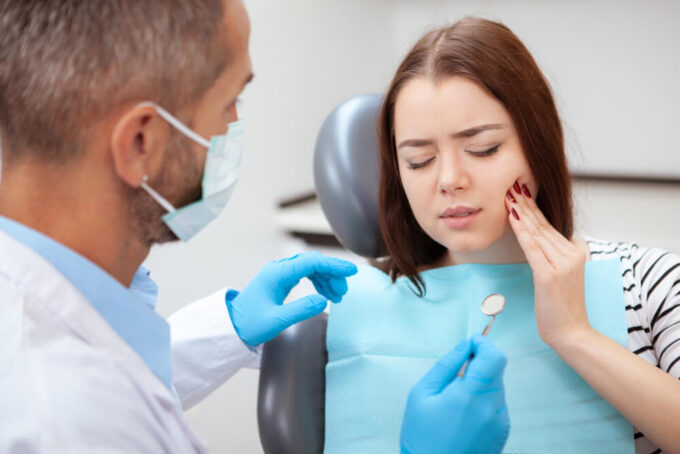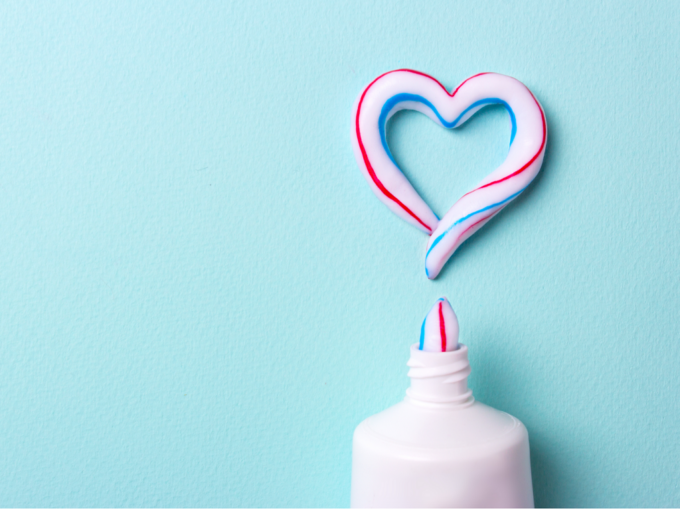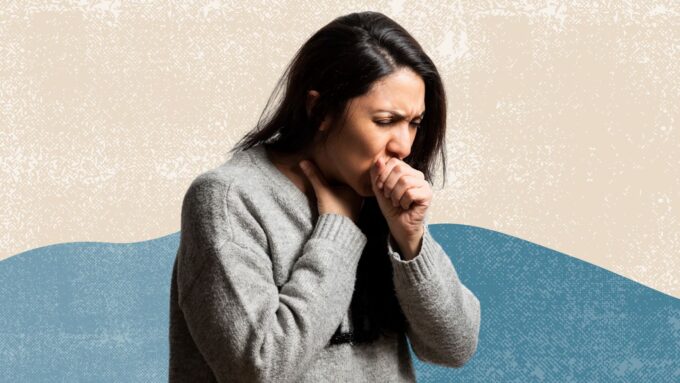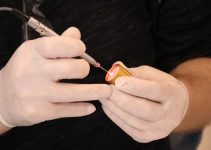As per the US Census, by 2060, the total number of US seniors who are above the age of 65 years is predicted to reach 99 million, which will account for 25% of the entire population. Senior Americans that have poor dental health are those who don’t have insurance policies to cover their dental health, who are economically challenged, or are members of ethnic or racial minorities.
Being homebound, disabled, or institutionalized can boost the risk of poor oral health. Seniors who are above the age of 50 years and who smoke are less likely to receive dental care than people who don’t smoke. There are several Americans who don’t have any type of dental insurance since they no longer have the benefits on retirement and the national Medicare program doesn’t cover dental care.
Type of oral health issues faced by adults

Source: bodent.rs
- Unaddressed tooth decay: More than 96% of adults above the age of 65 years have already had a cavity. Among them, 1 in 5 never treats their tooth decay.
- Loss of tooth: Nearly 1 in 5 adults above the age of 65 years have lost all their teeth. Total tooth loss is common among adults who are aged 75 and older as compared to adults aged between 65 and 74. When seniors lose all their teeth and start wearing dentures, this can have an impact on their nutrition as people with no teeth prefer foods that are soft or easily chewed rather than vegetables and fruits.
- Gum issues: There are large numbers of adults that have gum diseases. 2 in 3 adults above the age of 65 years are seen to be suffering from gum diseases.
- Oral cancer: Any form of oral cancer is diagnosed in older adults more than younger ones. The median age for being diagnosed with oral cancer is around 62 years.
- Chronic diseases: Individuals, especially seniors, suffering from chronic diseases like diabetes, arthritis, chronic obstructive pulmonary disease (COPD), and heart issues are more prone to developing periodontal diseases. However, at the same time, there are lesser chances of receiving dental care than seniors who don’t have the aforementioned chronic conditions.
- Darkened teeth: Darkened teeth are usually caused due to altered dentin, which is the bone-like tissue that lies under the tooth enamel. This also happens due to consuming beverages and foods that cause stains. Darkened teeth can also be the reason behind thinning of the outer enamel layer which leads to the display of darker yellow dentin.
- Lack of sense of taste: With aging, there is a natural process of impair of the sense of taste. Nevertheless, dentures, diseases, and some medicines can also contribute to loss of taste.
- Uneven jawbone: When you lose a tooth but don’t replace the missing tooth, this often leads to an uneven jawbone. The remaining teeth have a tendency of shifting to spaces that are left open by the missed teeth.
- Stomatitis: Poorly-fitted dentures, building up of fungus Candida albicans can lead to this condition. This leads to inflammation of the tissue that lies right under the denture.
Regardless of being a senior or an adult, whenever you spot dental issues, you should immediately seek help from dental clinics like https://peakfamilydentalaz.com.
Make dental care a priority – A few valid reasons
As already mentioned earlier, dental care among seniors still continues to be a concern in the United States of America. The benefits received through dental care cease after reaching the retirement age and this is when they have to take care of their dental health since routine care is also not covered by Medicare. So, let’s check out why it is vital for seniors to give priority to dental health.
Dental care prevents tooth decay

Source: flsmile.com
Plaque caused due to bacteria can lead to harm of tooth enamel and this causes cavities. Dry mouth is the main reason why older adults suffer from the risk of cavities. When there is enough saliva in your mouth, your teeth remain protected and hence there are fewer bacteria. But when older adults suffer from dry mouth, this leads to tooth decay.
Dental care wards off gum diseases

Source: zood-news.ir
Two among three seniors above the age of 65 already have gum diseases, as per records by the Centers for Disease Control and Prevention (CDC). There is a critical gum disease called periodontitis which can lead to sore gums, bleeding gums, loss of teeth, chewing issues, among several other health issues. Not paying heed to the smaller symptoms of periodontitis is the main reason behind the progress of the disease. Regular dental care can ward off such diseases
Dental care can prevent heart diseases

Source: suggest.com
Whenever there is inflammation caused by gum issues, this can directly have an impact on your heart. The American Academy of Periodontology says that there are several gum diseases that can worsen certain heart conditions and hence can lead to stroke. So, it is better to take care of your dental health to prevent heart problems.
Dental care saves you from pneumonia

Source: everydayhealth.com
Seniors who don’t practice dental hygiene and those who smoke are always at a higher risk of pneumonia. When a person breathes, bacteria can travel and spread from the mouth to the lungs. This is why it is necessary to maintain proper dental hygiene among older adults who don’t care about themselves. This can prevent pneumonia from occurring.
Hence, you should remind your parents to brush twice daily with toothpaste that contains fluoride. Remind him to floss every day and this prevents gum issues and build-up of plaque. In case he finds it difficult to floss, speak to a dentist to help with other techniques and tools.
Schedule regular appointments with the dentist to identify dental issues as soon as they occur. This will let them get treated as soon as possible so that the disease can be stopped from spreading.







